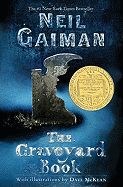Can there come a time when even a good writing group isn't good for your writing life?
I've been wondering if any other writers ask themselves that. Whether and how others decide to part ways with their writing groups.
But first I need to say I
love my writing group. Both the group as a whole and the individuals in it. Without them, I would never have made it to publication. They took me in as a newbie, taught me about writing for children and about the children's publishing world. Believed in me, supported me. And, more important, became my friends. They've been there through hundreds of rejections and were there at my first signing.
Ours is a particularly special group -- I wrote about the seriousness and professionalism of the group in
this post last fall -- and one that functions well. It's not by chance that we call ourselves a writing group, not a crit group, because while we offer each other very helpful insights, we go well beyond that to share our writing and personal lives.
So why have I been only an occasional participant over the last few years? Why do I struggle every month with a decision about whether to attend or not?
The answer is complicated. Or, more accurately, there are many answers.
Tick, tock
One is the simple issue of time. The time I have available for reading, writing, revising and managing the business of submitting is limited. And being a responsible member of a writing group takes a substantial investment of time. To critique other people's writing and do it justice, I have to read a manuscript carefully and repeatedly. I have to be thoughtful about what to say and how to say it. While I learn from other people's writing and my reaction to it, I came to the point where I wondered if that was the best way to spend the little bit of time I had available.
Contagion
Another issue is attitude.
My attitude. I've been through several bouts of serious doubt and discouragement -- about my writing in particular, but about the publishing industry overall. So often, all the good effort and craft that goes into our writing seems in vain. That feeling taints my response to manuscripts and isn't one I want to affect others in the group. While they're realistic about the state of children's literature and their odds, my writing friends mostly manage to be hopeful in the face of long odds. So I don't want to be a kind of Typhoid Mary, infecting others with my publishing cynicism.
Multiplication factor
A third difficulty for me, an offshoot of my attitude issue, is that I find my friends' stories of being underappreciated or even mistreated by editors and agents very discouraging. Yes, I love and am buoyed by the successes of my friends -- and there have been many. But reading so many manuscripts that deserve to reach readers' hands and never will is disheartening. It's like having your own rejections multiplied tenfold.
Familiarity breeds... ineffectiveness
Then there's the question of how well writing friends can help each other. After a while -- and I've known most of these writers 10 years or so -- you come to know each other's stories and styles so thoroughly that you can't always see them clearly. For example, one friend in the group pulls from the personalities and experiences of her extended family for many of her stories. By now, I've met almost all of them and know some of their history. So when a manuscript makes an assumption about what a reader understands, I might not catch it. Because I share those assumptions now. Sadly, knowing each other so well makes us less useful to each other.
Playing solitaire
There's one other thing. Lately, I've felt the need to
not share my writing with many people. I've been trying to focus on writing for myself, enjoying the process and not thinking about publication. It's the only way I've been able to survive the doubts and cynicism. To keep writing in the face of all that's ugly about the publishing business. Once, knowing I would have the chance to share my writing with the group motivated me. That's not the case now.
But how do you break up with your writing group? Should you even try?
I offered to leave the group to make room for someone else (our group is large enough that we've agreed expanding it would make it unwieldy), but my friends declined my resignation. They hold a spot for me to participate at whatever level and frequency works for me. (See? I told you they're wonderful people.) So I attend when my schedule and level of hopefulness allow, responding to manuscripts on the fly and sharing in news of triumph, failure and everything in between.
I'm grateful my writing friends take me as I am, but I also feel guilty for not contributing equally. It leaves me feeling uncomfortable even when I do take part.
Does anyone else have experiences with writing groups to share? I've seen a good bit of information about how to form and organize writing groups, but not much on being part of one over the long term. It seems a topic worth discussing.
 The books in question are The Graveyard Book by Neil Gaiman and The Evolution of Calpurnia Tate by Jacqueline Kelly. You'll notice the Newbery seals on both covers. They're both extremely well-written and original books that have won over readers across a broad spectrum.
The books in question are The Graveyard Book by Neil Gaiman and The Evolution of Calpurnia Tate by Jacqueline Kelly. You'll notice the Newbery seals on both covers. They're both extremely well-written and original books that have won over readers across a broad spectrum.








